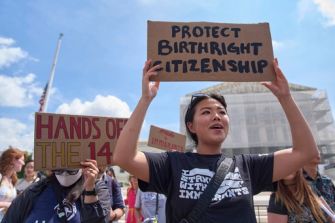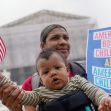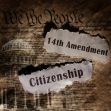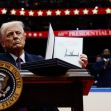The Supreme Court grappled on Thursday with a pivotal legal question raised by the Trump administration concerning the authority of federal judges to issue nationwide injunctions. This judicial power, which temporarily halts government policies across the entire country, is at the center of a high-stakes dispute over former President Donald Trump's controversial executive order restricting birthright citizenship.
Trump's order, announced on his first day back in office, aims to end automatic citizenship for children born in the United States to noncitizen parents, directly challenging long-established interpretations of the 14th Amendment. Three separate lower federal courts have already blocked the policy nationwide, declaring it unconstitutional and contrary to established precedent.
During oral arguments, several justices expressed concern about whether individual district judges possess excessive power when issuing nationwide injunctions. Justice Elena Kagan highlighted frustrations over how such injunctions have historically blocked executive policies regardless of political administration, whether Democratic or Republican. She emphasized a potential paradox where repeated lower court rulings against the administration might not effectively escalate to Supreme Court review if injunctions were narrowly tailored only to plaintiffs involved in individual lawsuits.
Justice Neil Gorsuch underscored this procedural complication, asking how the Supreme Court might promptly address the substantive constitutionality of the executive order without broad injunctions. Gorsuch has previously criticized nationwide injunctions as “patently unworkable” in a 2020 opinion, where he argued that such sweeping court orders sow chaos and exceed judicial authority. Justice Samuel Alito has also voiced similar concerns in recent opinions, warning that these broad orders can improperly extend a single judge’s reach nationwide.
Solicitor General D. John Sauer argued for the administration, stating that injunctions should be limited solely to the parties directly involved in lawsuits. Under his argument, Trump's birthright citizenship policy would apply to all individuals not directly named as plaintiffs. However, Justice Brett Kavanaugh challenged Sauer on practical implications, questioning how hospitals and states should handle newborns under the administration's policy. Sauer’s uncertain response—acknowledging that "federal officials will have to figure that out"—highlighted complexities and potential chaos from the policy's immediate effects.
Chief Justice John Roberts suggested a possible compromise, proposing the Court could limit nationwide injunctions to specific cases or request further briefings to address the underlying constitutional issues. Justice Amy Coney Barrett also appeared skeptical of Sauer’s assurance that alternative judicial paths, such as class-action lawsuits, could sufficiently address these widespread constitutional concerns. Kelsi B. Corkran, representing immigrant advocacy groups challenging the order, countered that class-action mechanisms are cumbersome and often delay relief for those challenging executive actions.
Trump himself weighed in on the case, posting on social media shortly before arguments began. He defended his citizenship order, arguing that birthright citizenship was not intended for tourists or temporary visitors, adding that “Birthright Citizenship was not meant for people taking vacations to become permanent citizens of the United States.” His remarks highlighted the political backdrop against which the legal battle is unfolding.
The Supreme Court has never directly ruled on the legality of nationwide injunctions, though the tool has been used more frequently in recent years to block executive actions. Critics, including many conservative justices, argue that such orders extend judicial power too far and disrupt the balance between the executive and judicial branches. University of Michigan law professor Margo Schlanger warned that without these broad injunctions, constitutional rights would become unevenly applied and difficult to enforce collectively, particularly following restrictive Supreme Court precedents on class-action suits like the landmark Walmart v. Dukes case.
The Court’s decision, anticipated by June, could profoundly reshape judicial authority and significantly impact the rights of millions, particularly children born in the United States to noncitizen parents. For now, Trump’s executive order remains blocked nationwide as the justices deliberate.






